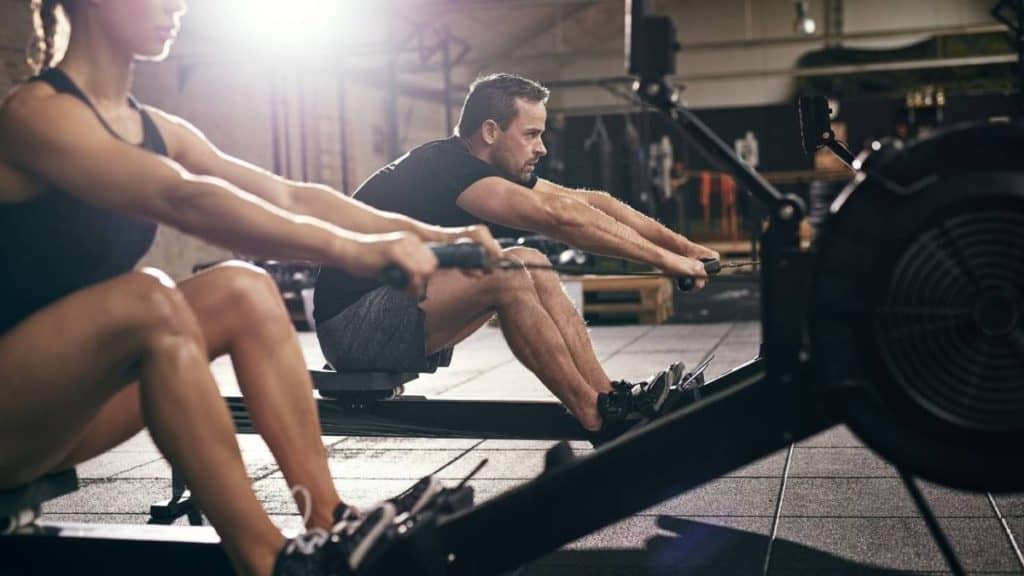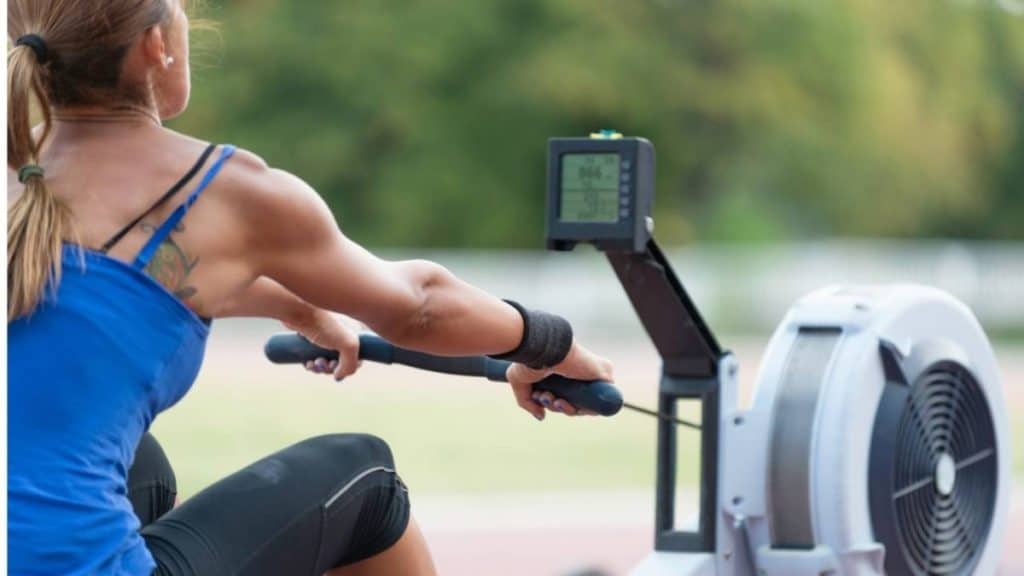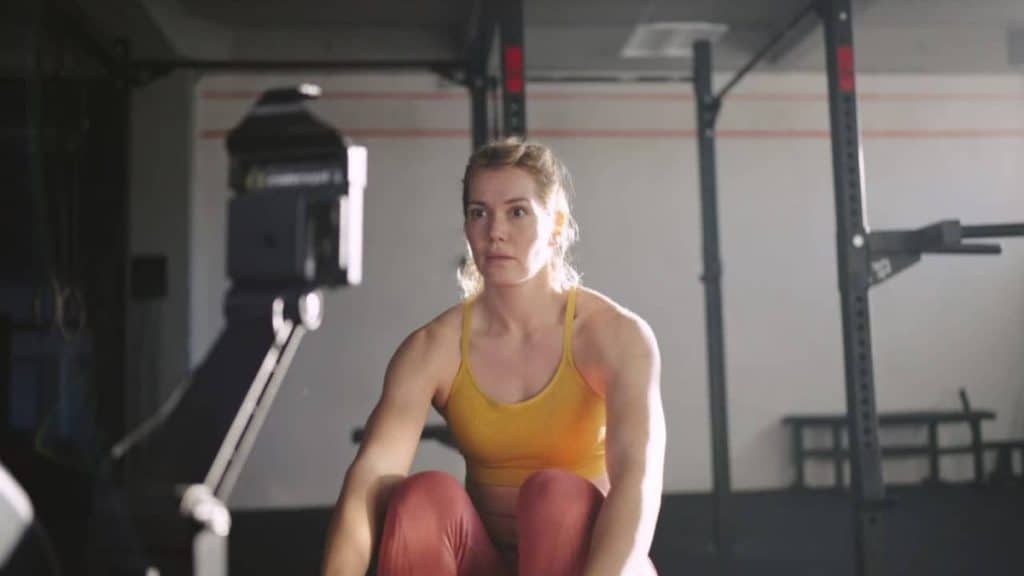
Rowing? Wondering how long it is going to take for you to row 2000m? That’s what we are going to take a look at on this page.
Here, we are going to give the average time to row 2000m for both males and females. We are also going to give the expected number of calories that you can burn.
We are, mostly, going to be talking about intermediate rowers here. This is because rowing 2000m is incredibly tough, and this makes giving beginner times tough. This is because there is going to be a whole lot of stopping and starting for the rowers, and that can really start to add minutes to the time.
Table of Contents
Average Time to Row 2000m (Male)

The average time to row 2000m will be dependent on whether you are a male or a female. An intermediate rower can expect to row 2000m between 7 and 10 minutes. Beginners can probably bump this up to between 10 and 13 minutes.
To start with, we are going to look at the average time to row 2000m for males.
We have selected an ‘intermediate’ time here. This means that you will have a year or two of rowing under your belt. If you are a newbie that has managed to row 2000m, then you can expect to add about 2-3 minutes onto this time. However, the more you row, the faster you are going to get.
We have also given the known world record for each age group. This should give you an overview of the gulf between intermediate times and those that are blitzing through the 2km.
Do bear in mind that these times are based upon somebody rowing on calm water in a straight line. Obviously, if you are fighting against a current, or you have to do a lot of turns, then the speed is going to be slightly slower. The boat that you are in is likely to play a major role in the sorts of distance that you are going to be able to cover too.
Of course, if you are using a rowing machine in the gym, then things will be different still.
| Age | Average Time to Row (MM:SS) | World Record (MM:SS) |
| 15 | 00:07:40 | 00:06:05 |
| 20 | 00:07:13 | 00:05:43 |
| 25 | 00:07:07 | 00:05:38 |
| 30 | 00:07:04 | 00:05:38 |
| 35 | 00:07:10 | 00:05:36 |
| 40 | 00:07:19 | 00:05:40 |
| 45 | 00:07:28 | 00:05:47 |
| 50 | 00:07:36 | 00:05:54 |
| 55 | 00:07:50 | 00:06:01 |
Rowing is a full-body workout that can help you build muscle, burn calories, and enhance your fitness. But with so many indoor rowers on the market, how do you know which one is right for you? Check out my Top 5 Rowing Machines For 2023

Average Time to Row 2000m (Female)
As with the male times, we are going to give the intermediate time as the average time to row here. This means that you may need to spend a year or two rowing before you reach those levels. If you are a beginner that can row for 2000m without stopping, then you can add a couple of extra minutes to these times.
As you can see, for all ages, the average time to row for a female is going to be much higher than with males. This is because rowing tends to rely heavily on upper body strength, and males tend to naturally have more of that. Although, of course, an intermediate female is always going to perform better on the water than a new rowing male.
| Age | Average Time To Row (MM:SS) | World Record (MM:SS) |
| 15 | 00:09:11 | 00:06:56 |
| 20 | 00:08:32 | 00:06:26 |
| 25 | 00:08:25 | 00:06:21 |
| 30 | 00:08:30 | 00:06:24 |
| 35 | 00:08:44 | 00:06:35 |
| 40 | 00:09:01 | 00:06:48 |
| 45 | 00:09:07 | 00:06:52 |
| 50 | 00:09:13 | 00:06:57 |
| 55 | 00:09:30 | 00:07:10 |

Check out my big rowing data analytics that contains every rowing distance by age and gender in a full comparison table for beginners and intermediates. You can compare your average rowing times against every distance in your age and ability group.
Other Helpful Rowing Distances
Calories Burned Rowing 2000m
The number of calories that you can burn while rowing this sort of distance can vary. It can be anywhere from 7 to 35 calories per minute. it will all be dependent on your gender, weight, and the equipment that you are using. In all cases, rowing is going to be a tremendous workout.
It is tough to determine how many calories you will burn if you are rowing 2000m. This is because a few things need to be considered:
- Sex
- Speed of rowing
- Your weight
- Your muscle mass
- The weight of the boat
- If you are rowing in a gym rather than on water (the experience is different)
There doesn’t even seem to be a consensus as to the number of calories you can burn while rowing. Some people believe that you are going to be burning 7 calories per minute of rowing, while others expect you to burn somewhere closer to 35 calories per minute. This is under the assumption that you are completing 1000m in 5-6 minutes.
This means that you can expect the following:
| Distance (M) | Calories burned (minimum) | Calories burned (maximum) |
| 0-200m | 14 | 35 |
| 201-400 | 28 | 70 |
| 401-600 | 42 | 105 |
| 601-800 | 56 | 140 |
| 801-1000 | 60 | 175 |
| 1001-1200 | 74 | 210 |
| 1201-1400 | 88 | 245 |
| 1401-1600 | 102 | 280 |
| 1601-1800 | 120 | 315 |
| 1801-2000 | 132 | 340 |
You may notice that you burn more calories towards the end of the rowing run. This is because your body will have switched itself to the fat-burning mode by that point, and the calories are going to be burning like crazy. This means that if you do want ot burn a higher number of calories while rowing, then you will want to ensure that you are rowing for lengthier periods of time.

Should You Row 2000m Every Day?
There isn’t a major issue with rowing 2000m every single day. It isn’t like running miles and miles. At the most, you are only going to be pushing yourself for a few minutes at the most.
Still, rowing can be quite a strenuous activity. Therefore, you are encouraged to take a day or two off every so often. It will give your body time to rest and rejuvenate which, of course, means that you are far less likely to suffer from an injury.
If you are new to rowing, we see absolutely no reason why you wouldn’t be able to row 2000m in a single go. You won’t be doing it a massive speed, but it is the sort of sport where you can go at your own pace and work your way up from there.
Average Time to Row 2000m Summary
If you’re a beginner looking to improve your rowing skills, you might be wondering what the average time is to row 2000m indoors. While there’s no one-size-fits-all answer to this question, it’s helpful to know that the average 2000m time across all ages and genders is 7 minutes and 22.3 seconds.
However, as a beginner, it’s important to focus on improving your own personal best rather than comparing yourself to others.
